Products & Services
Quarry Rock Products and Sizes
At Kistap Quarry we have minus rock products and clean rock products. Additionally, we also offer large landscape rock in various sizes.
Minus rock products include fine particles, giving them a somewhat dusty or “dirty” appearance. These fines help the material compact effectively. Clean rock products are free of fine particles, giving them a neat and uniform appearance.
Large landscape rock is commonly used for building rock walls and rockery features.
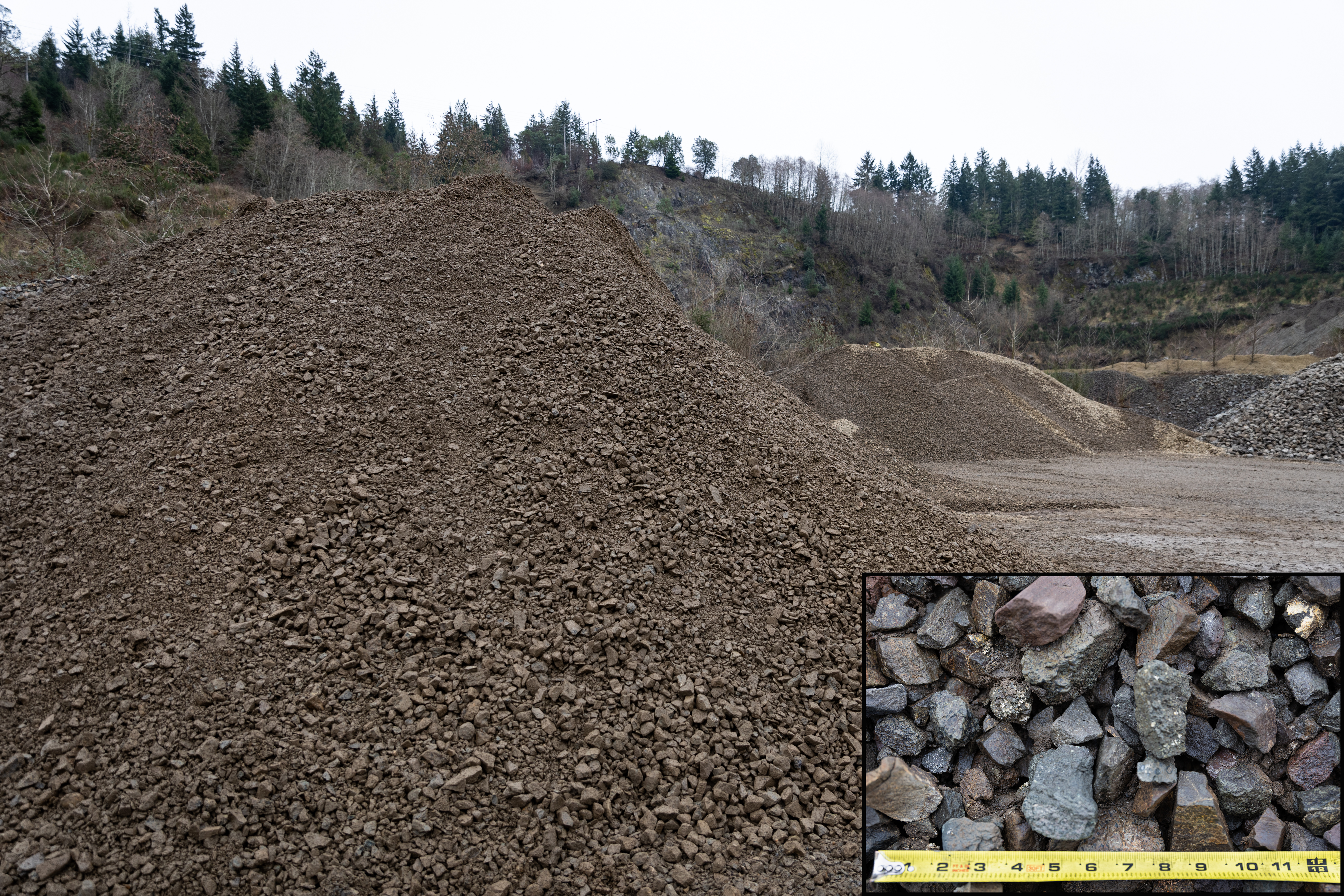
2 1/2 Minus refers to crushed rock with the largest pieces measuring 2 1/2 inches, mixed with smaller fragments and fines. Its compacting qualities make it ideal for base layers in driveways, walkways, and various construction projects.
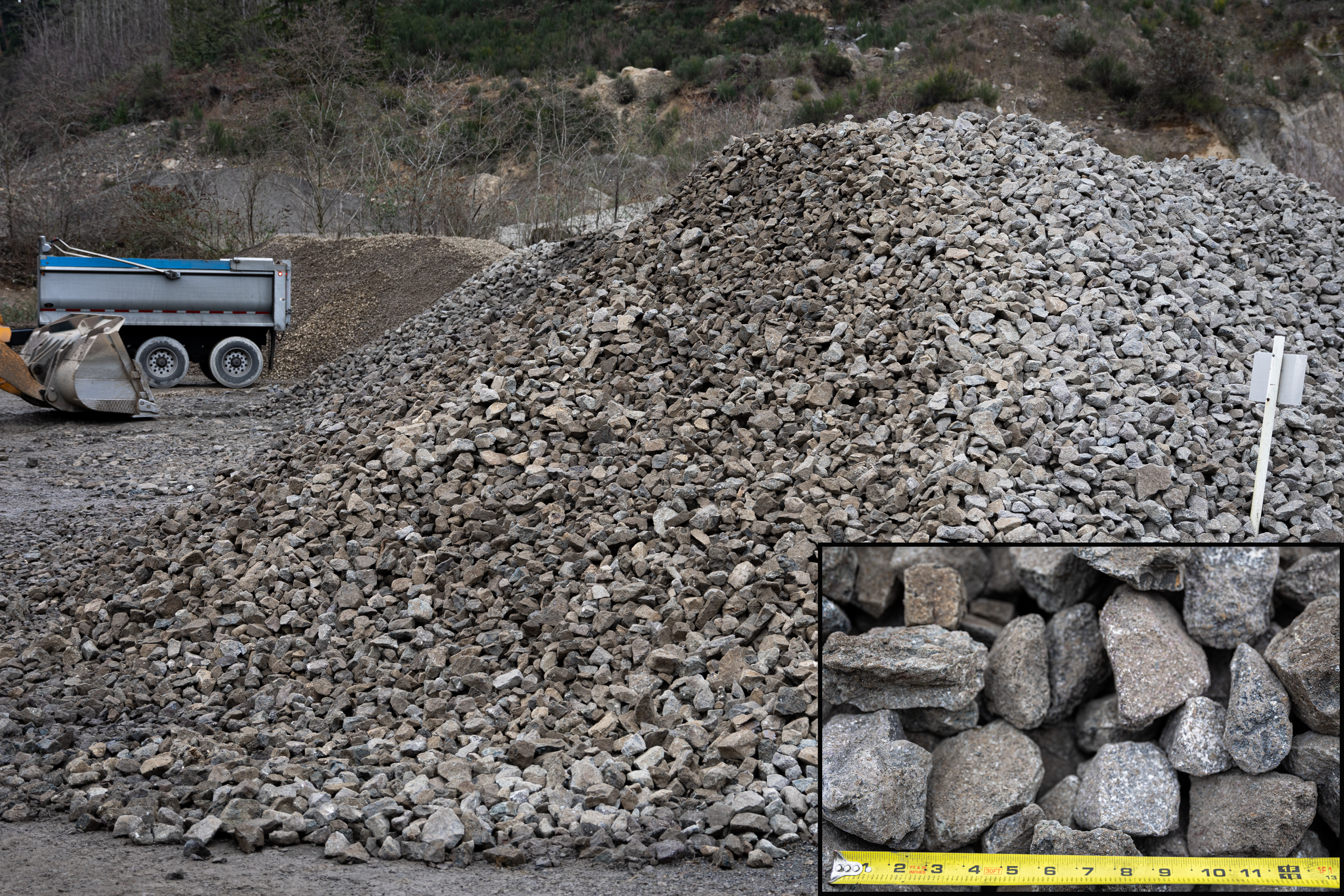
2″ – 4″ Quarry Spalls are crushed rocks, typically made from quarried basalt, with angular, fractured pieces ranging from 2 to 4 inches in diameter. They contain no fine material (“minus” size), giving them a clean, bony structure. These spalls are commonly used for construction entrances, road bases, and stabilizing muddy areas, as they firm up soft ground and allow drainage. They are also used as backfill for rock walls, pavement subbases, or for erosion control on slopes.
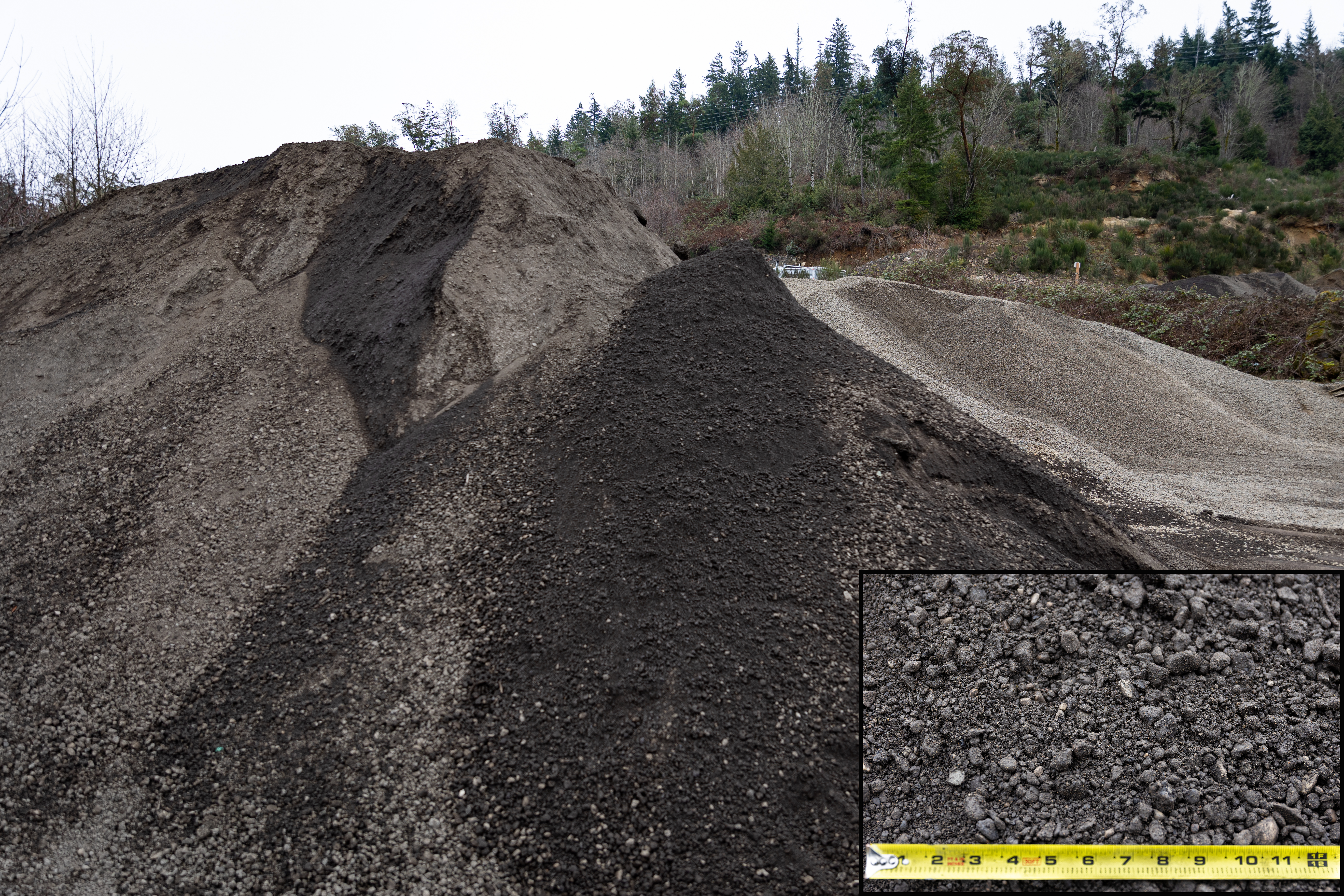
3/4″ Recycled Asphalt refers to processed asphalt material that has been reclaimed from old pavement, crushed, and screened to a maximum size of 3/4 inch. It typically includes a mix of asphalt binder and aggregate, with smaller fines included (often classified as “minus” material). This recycled product is often used as a cost-effective, eco-friendly option for driveways, pathways, and parking lots, as it compacts well and provides a stable base or surface layer. It can also be used for pothole repairs or as a subbase for new asphalt paving. The material’s performance benefits from the residual asphalt binder, which helps it bind together when compacted.
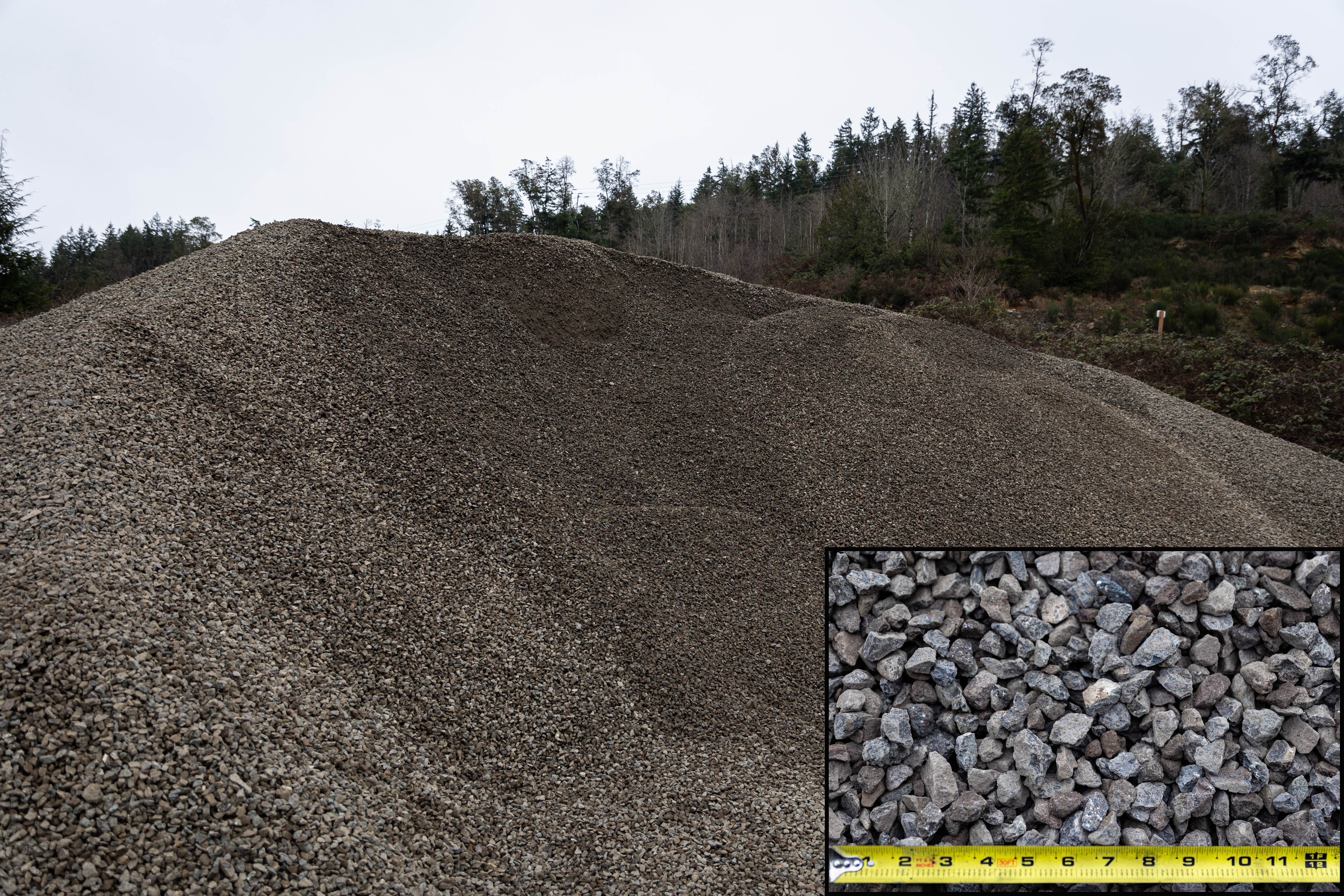
3/4″ Clean Drain Rock refers to crushed rock, typically made from gravel or washed stone, with pieces sized between 1/2 inch and 3/4 inch, free of fines and dust. Its “clean” nature ensures excellent drainage, making it ideal for use in French drains, septic systems, landscaping, and around foundations to prevent water buildup. The absence of fines allows water to pass through easily while providing structural stability.
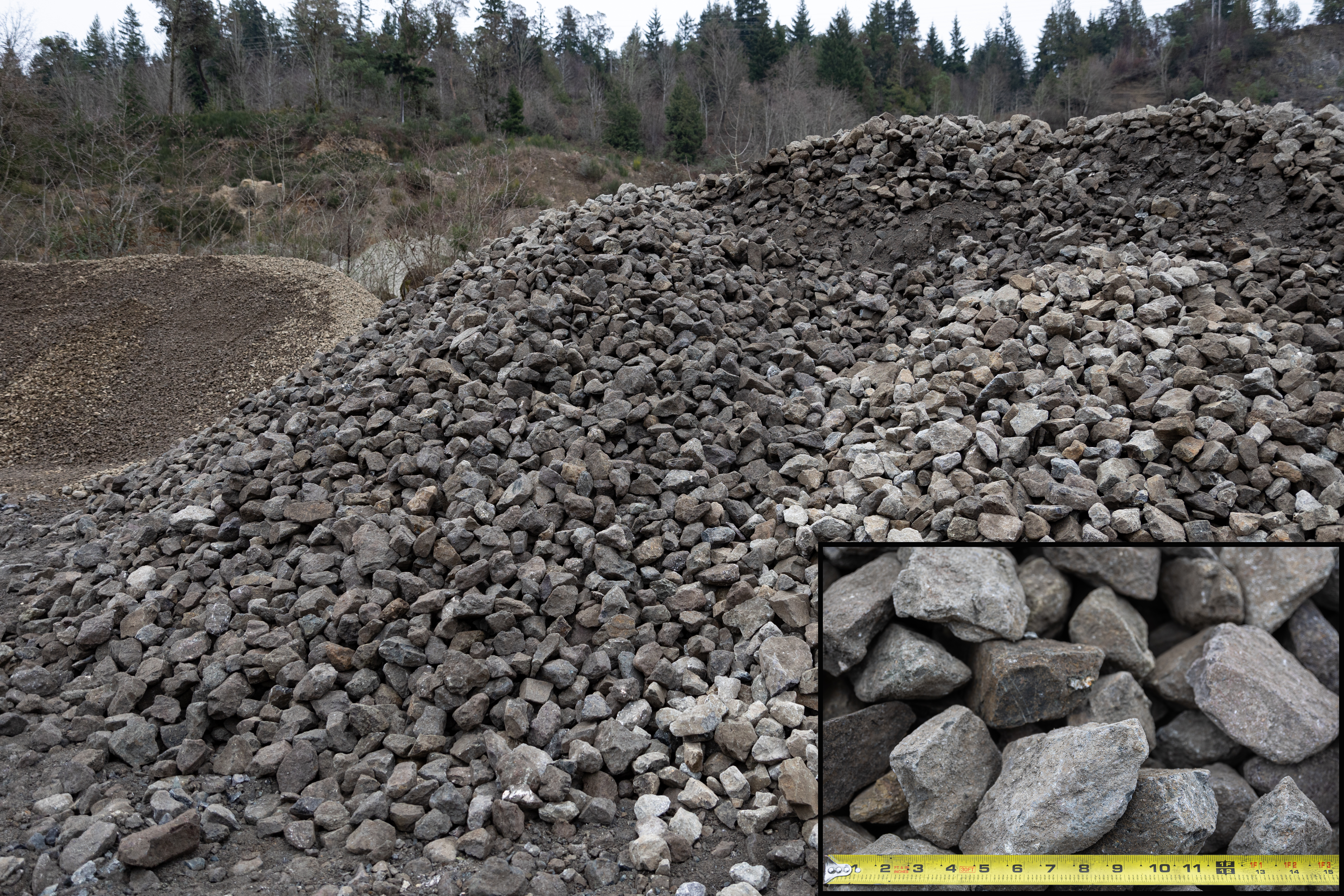
4″ – 8″ Quarry Spalls are crushed rocks, typically quarried from basalt, with angular, fractured pieces ranging from 4 to 8 inches in size. They contain no fine material (“minus” size), resulting in a clean, coarse texture. These spalls are commonly used for construction entrances, road bases, backfill for retaining walls, and erosion control on slopes, as they provide stability and allow for drainage.
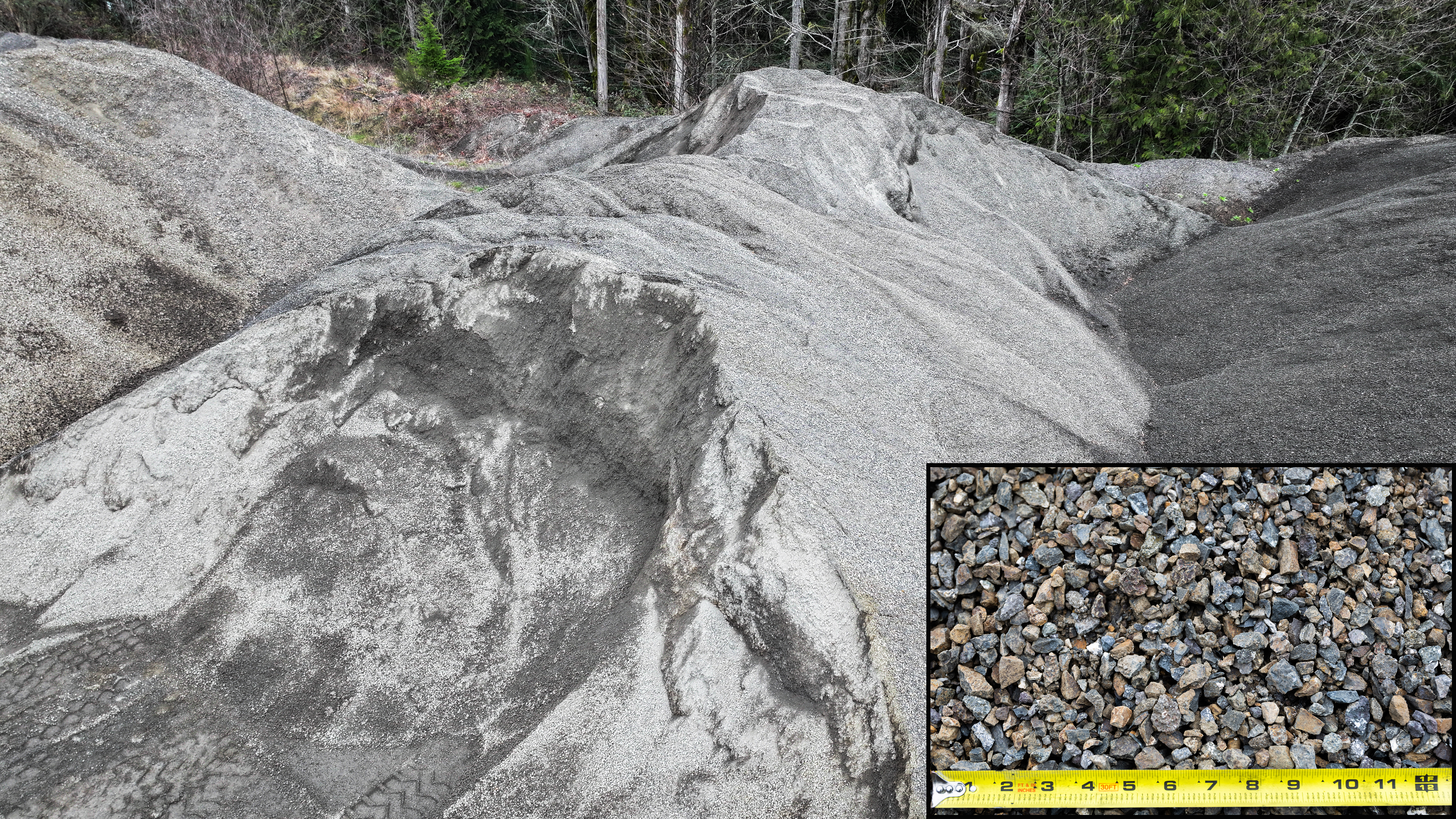
5/8″ Minus refers to crushed rock where the largest pieces are 5/8 inch in diameter, mixed with smaller fragments and fines. This material is known for its compacting properties, making it suitable for base layers in driveways, walkways, patios, and other construction projects where a stable, solid foundation is needed.
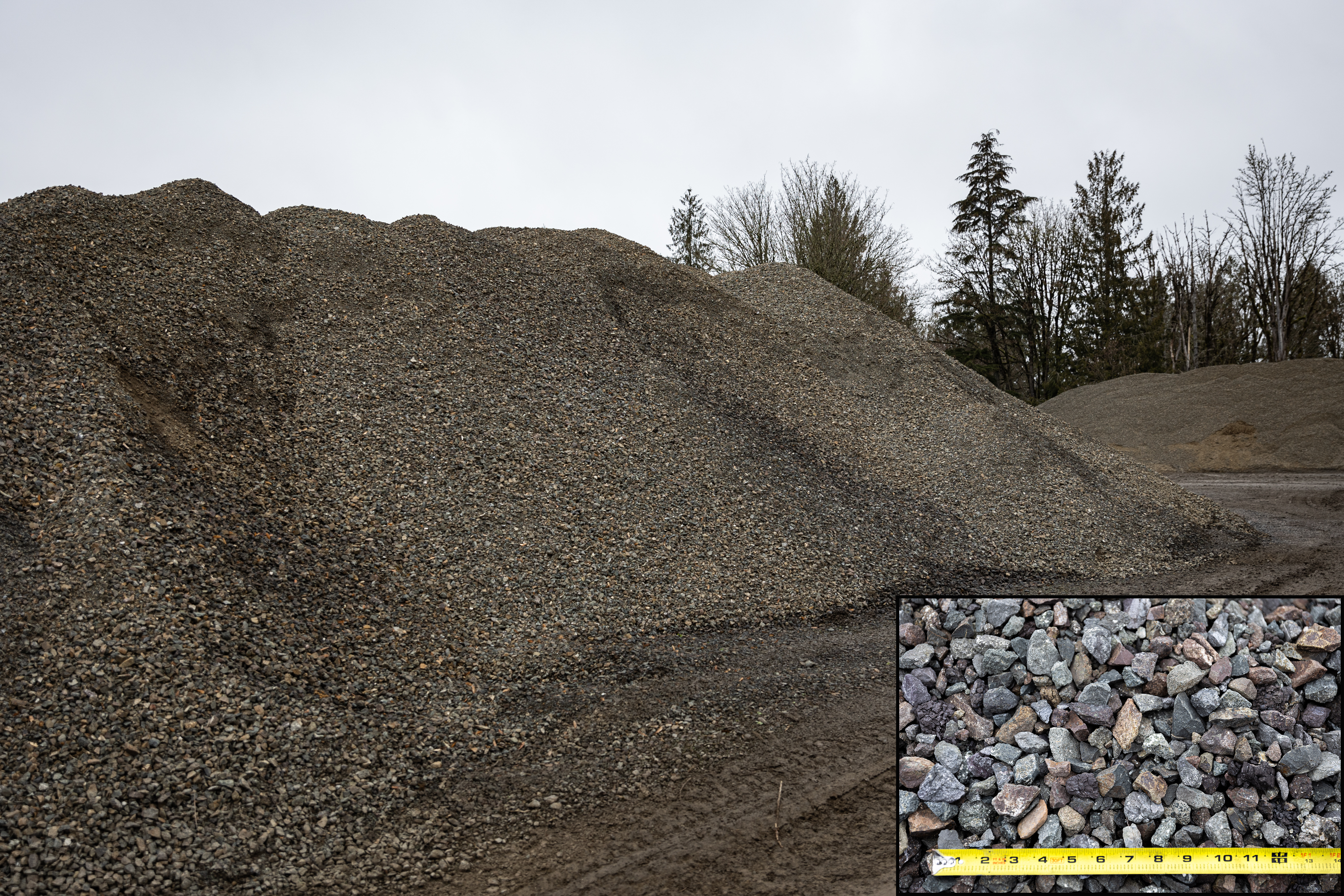
1 1/2″ Clean refers to crushed rock with pieces sized around 1 1/2 inches, free of fines and dust. This “clean” material, often made from gravel or quarried stone, ensures good drainage and is commonly used in applications like French drains, septic systems, landscaping, or as a base for concrete slabs where water flow and stability are key. The absence of fines prevents clogging and promotes permeability.
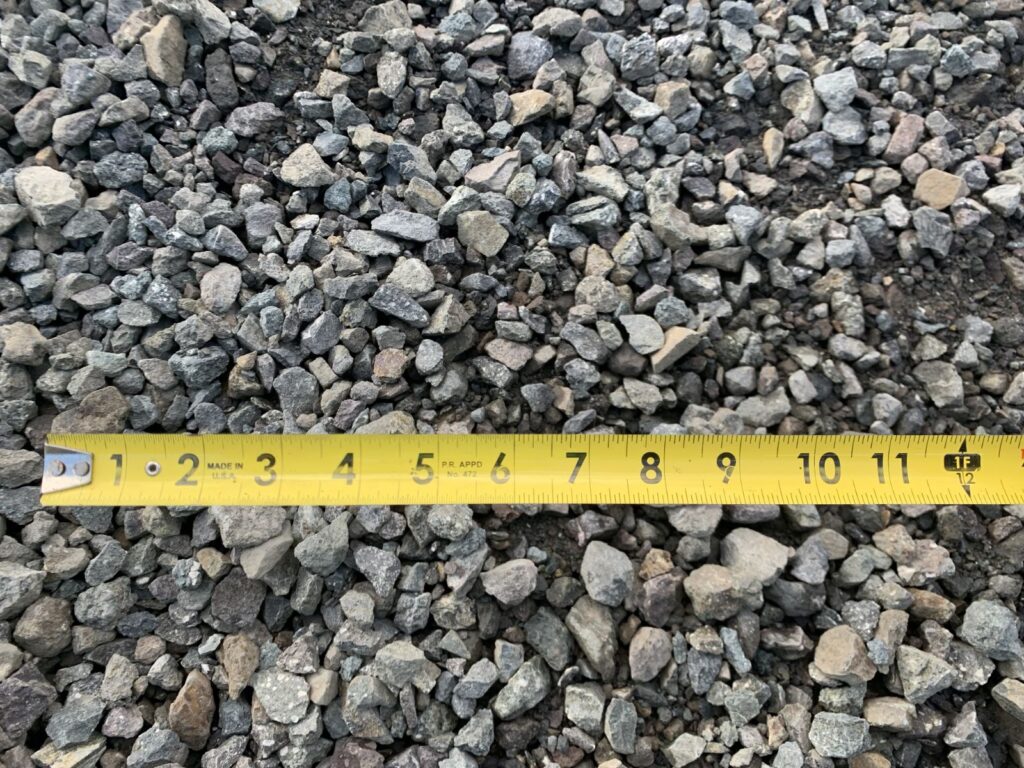 1 1/4″ Minus Spec refers to crushed rock where the largest pieces are 1 1/4 inches in diameter, combined with smaller fragments and fines, meeting specific gradation standards. The “spec” indicates it adheres to defined size distribution and quality requirements, ensuring consistency for construction use. This material is commonly used as a base layer for roads, driveways, and parking lots due to its excellent compaction properties, providing a stable foundation that supports heavy loads while allowing some drainage.
1 1/4″ Minus Spec refers to crushed rock where the largest pieces are 1 1/4 inches in diameter, combined with smaller fragments and fines, meeting specific gradation standards. The “spec” indicates it adheres to defined size distribution and quality requirements, ensuring consistency for construction use. This material is commonly used as a base layer for roads, driveways, and parking lots due to its excellent compaction properties, providing a stable foundation that supports heavy loads while allowing some drainage.
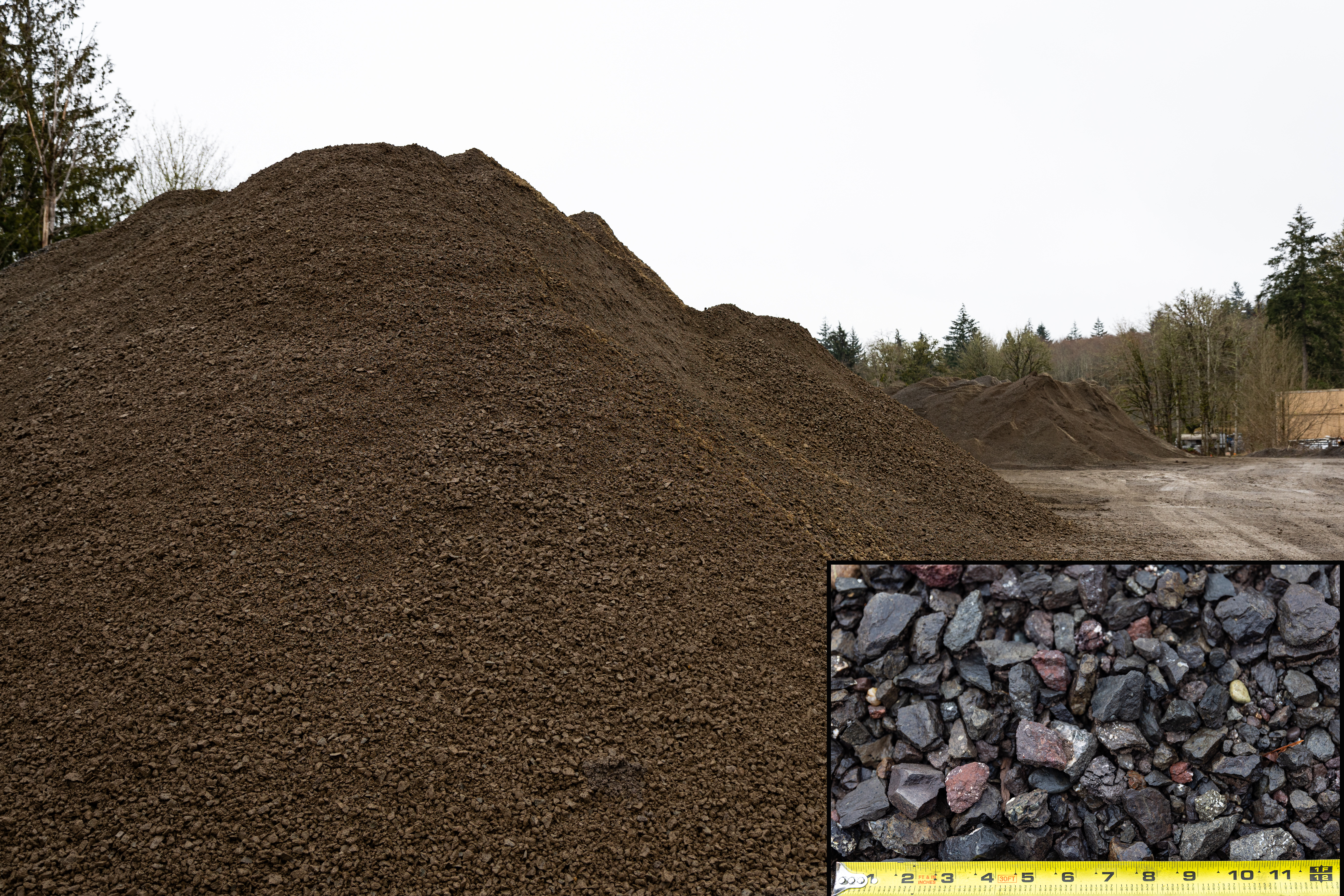
1 1/4″ No Spec refers to crushed rock where the largest pieces are approximately 1 1/4 inches in diameter, mixed with smaller fragments and fines, but without adhering to specific gradation or quality standards (i.e., no official specifications). This material is typically less uniform than “spec” grade and may vary in composition. It is often used for informal construction projects, such as temporary driveways, fill material, or landscaping, where strict standards are not required, and cost-effectiveness is a priority.
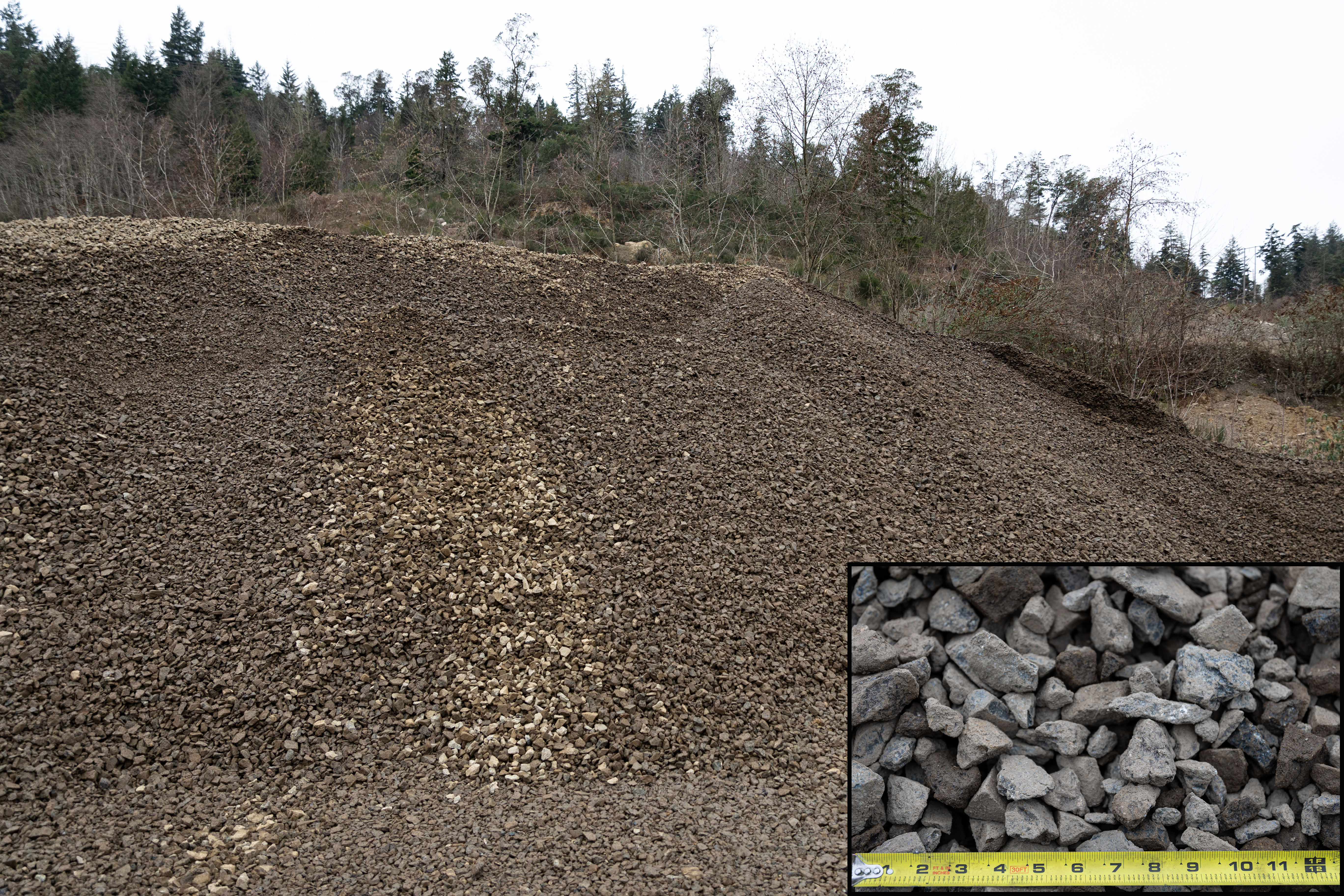
Perm Ballast, short for “permeable ballast,” refers to a type of crushed rock material designed for drainage and stability, often used in permeable paving systems, railroad tracks, or landscaping. It typically consists of clean, angular stones (without fines) ranging in size from 3/4″ to 2 1/2″, depending on the application. The lack of fines ensures high permeability, allowing water to flow through easily, which makes it ideal for managing stormwater runoff in parking lots, walkways, or green infrastructure projects. In rail applications, perm ballast supports the tracks, distributes loads, and facilitates drainage to prevent track instability. The specific size and type of rock can vary based on regional standards or project requirements.
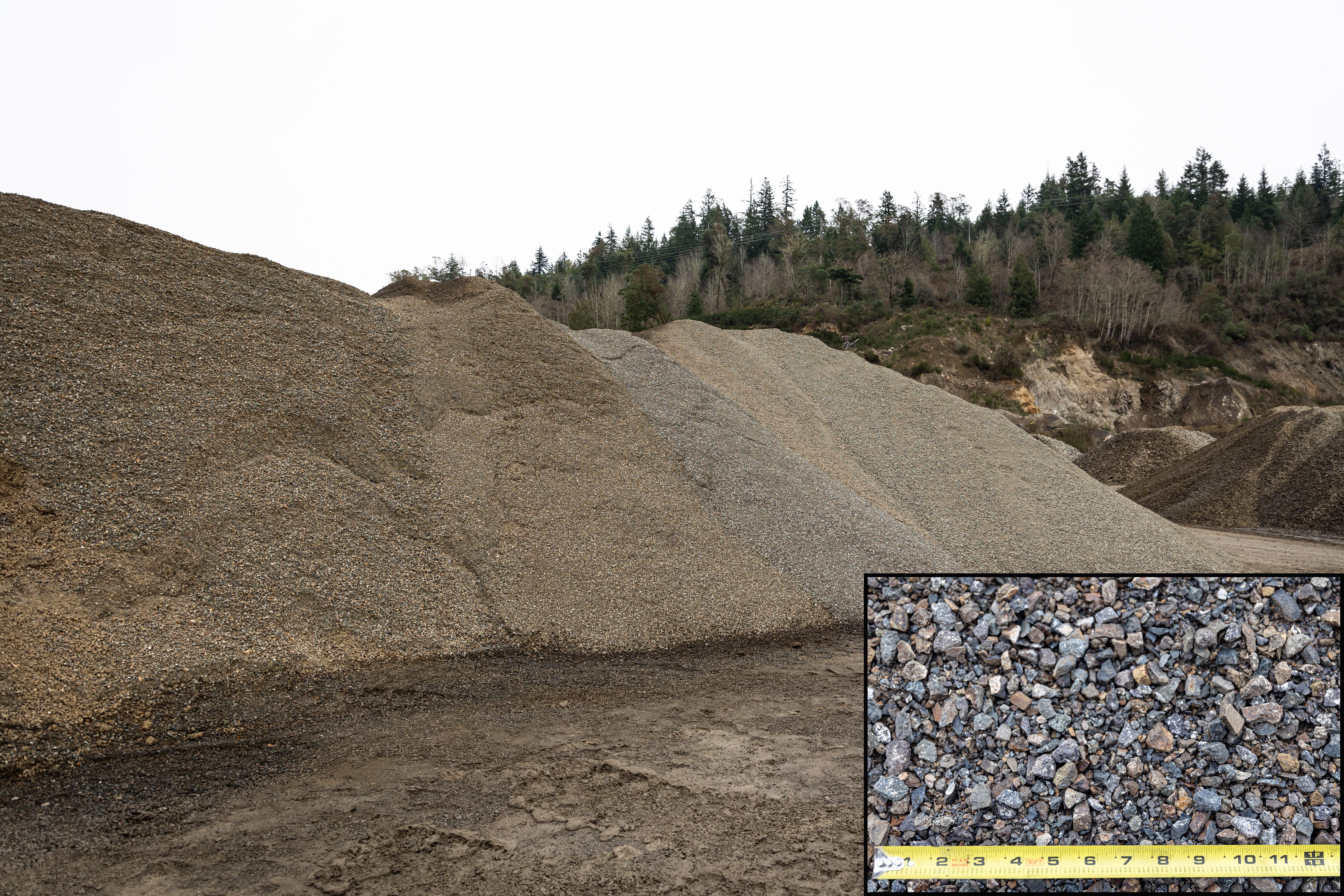
3/4″ Minus refers to crushed rock where the largest pieces are 3/4 inch in diameter, mixed with smaller fragments and fines. This material is valued for its compacting properties, making it suitable for base layers in driveways, walkways, patios, and other construction projects requiring a stable foundation.

4 Man refers to large quarry stones that typically require four people to lift or move due to their size and weight. These rocks are usually between 18 to 36 inches in diameter (or roughly 2 to 3 feet across) and can weigh between 400 to 1,000 pounds or more, depending on the material, such as basalt or granite. The term comes from the practical estimation of manpower needed to handle them. They are often used in landscaping for decorative purposes, retaining walls, erosion control, or as accent pieces in gardens and water features. Their size makes them ideal for projects requiring substantial, durable stone with a natural, rugged appearance.

3 Man refers to large quarry stones that typically require three people to lift or move due to their size and weight. These rocks are generally smaller than 4-man rocks, measuring around 12 to 24 inches in diameter (or roughly 1 to 2 feet across), and can weigh between 200 to 500 pounds, depending on the material, such as basalt or granite. The term reflects the estimated manpower needed to handle them. They are commonly used in landscaping for decorative purposes, retaining walls, erosion control, or as focal points in gardens and water features, offering a balance of size and manageability for projects needing substantial, natural stone.

2 Man refers to large quarry stones that typically require two people to lift or move due to their size and weight. These rocks are generally smaller than 3-man rocks, measuring between 200 and 700 pounds with a diameter of 18 to 28 inches. The term reflects the estimated manpower needed to handle them. They are commonly used in landscaping for decorative purposes, retaining walls, erosion control, or as focal points in gardens and water features, offering a balance of size and manageability for projects needing substantial, natural stone.

One Man rock refers to a rock that can be moved manually by a single person using a pry bar, not necessarily to pick it up and carry it. One Man rocks are typically between 12-18 inches across and weigh 50-200 pounds. Some sources describe them as being the size of a basketball to a medium beach ball. These rocks are commonly used in landscaping, landscaping projects, and as a base for retaining walls.

These rocks are are quarried landscape stones ranging from 5″ to 12″ in diameter and typically weighing 25-50 pounds. These rocks are often used for landscaping, creating rockeries, and other similar applications
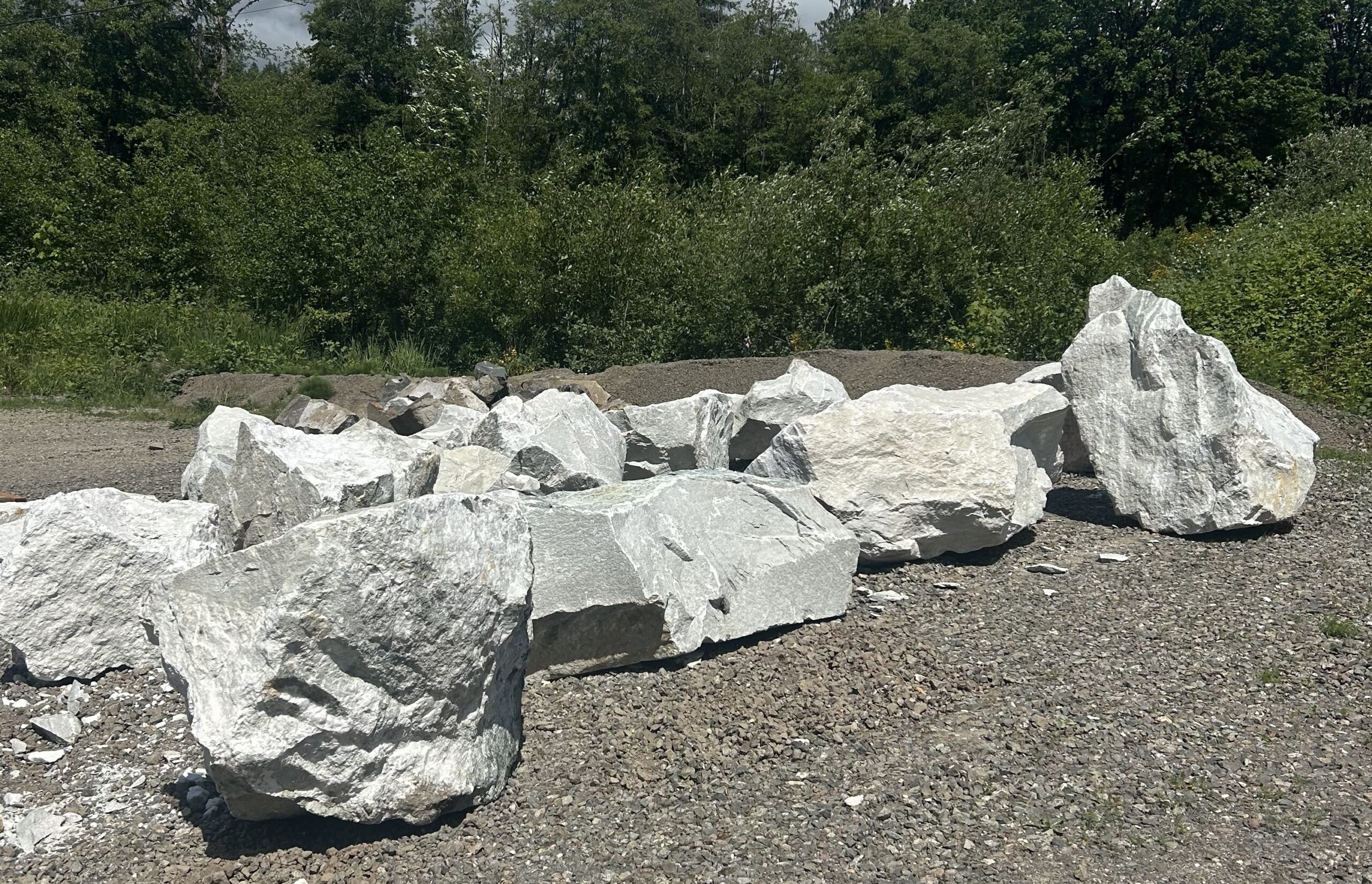
We have Granite Decorative Boulders in One Man through Five Man sizes. These boulders are ideal for creating bold retaining walls, natural barriers, or accents in large-scale landscapes. Granite boulders can also be used to protect certain areas, prevent vehicle access, or create boundaries without the need for artificial fencing.
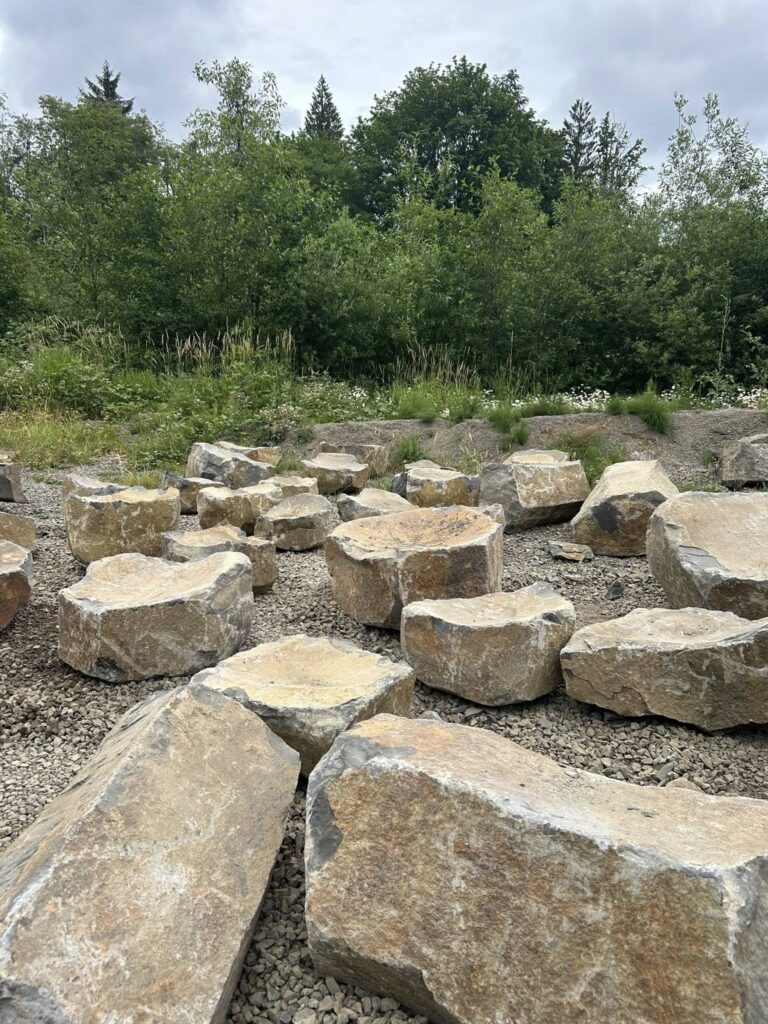
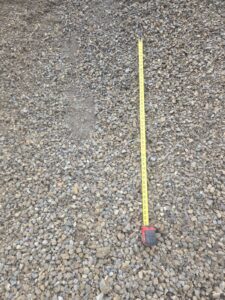
What size and type of rock is right for your project?
The type and size of rock needed will depend on the specific application. Generally, minus rock products work well as a base material for projects like concrete pavement and roads.
For driveways, 5/8″ minus and 1¼” minus are the most commonly used options. If you’re resurfacing an existing driveway, these sizes are typically the best choices. For areas with heavy traffic or large vehicles, 1¼” minus is a more durable option, while 5/8″ minus is suitable for driveways with lighter use and smaller vehicles.
Clean rock products are ideal for applications requiring drainage or filtration since they allow water to pass through more easily. They also serve as an attractive addition to landscaping. Often clean rock replaces beauty bark in gardens and is also used for garden pathways, and it works well as drain rock under downspouts.
Both minus and clean rock products can be used together for certain projects. For example, when constructing a road in a muddy area, a larger clean rock, such as quarry spalls, would be applied first to create a solid base. A minus rock can then be added on top to form a stable driving surface.
If you have questions about our rock products or want to discuss what size would be best for your project, contact us!
Our Round Rock Products
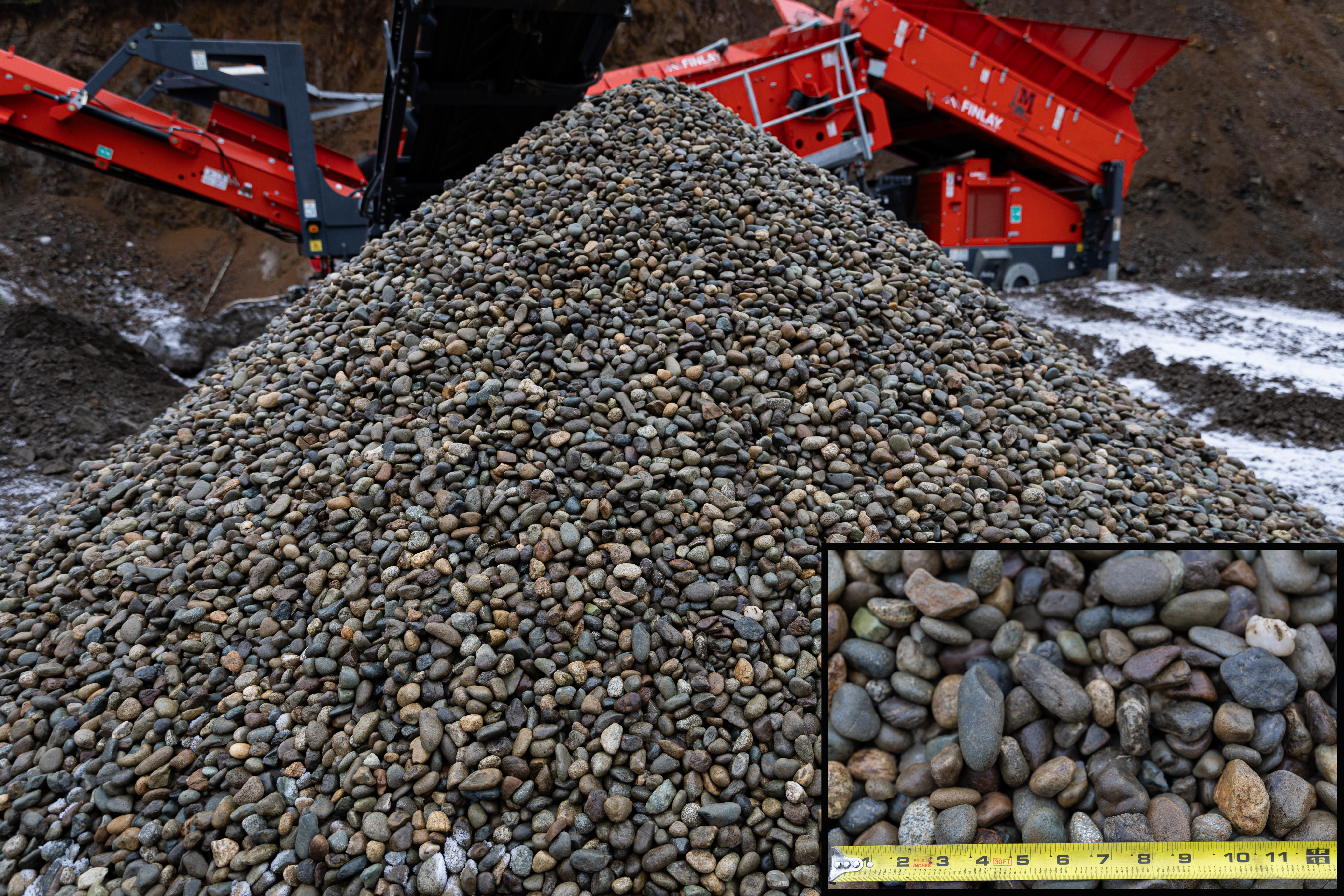
1 1/2″ drain rock is a type of washed, rounded rock, typically 1.5 inches in diameter, used for drainage and landscaping purposes. It’s often used in French drains, leach fields, and as a decorative ground cover. The larger size allows for efficient water flow, making it suitable for areas needing good drainage.
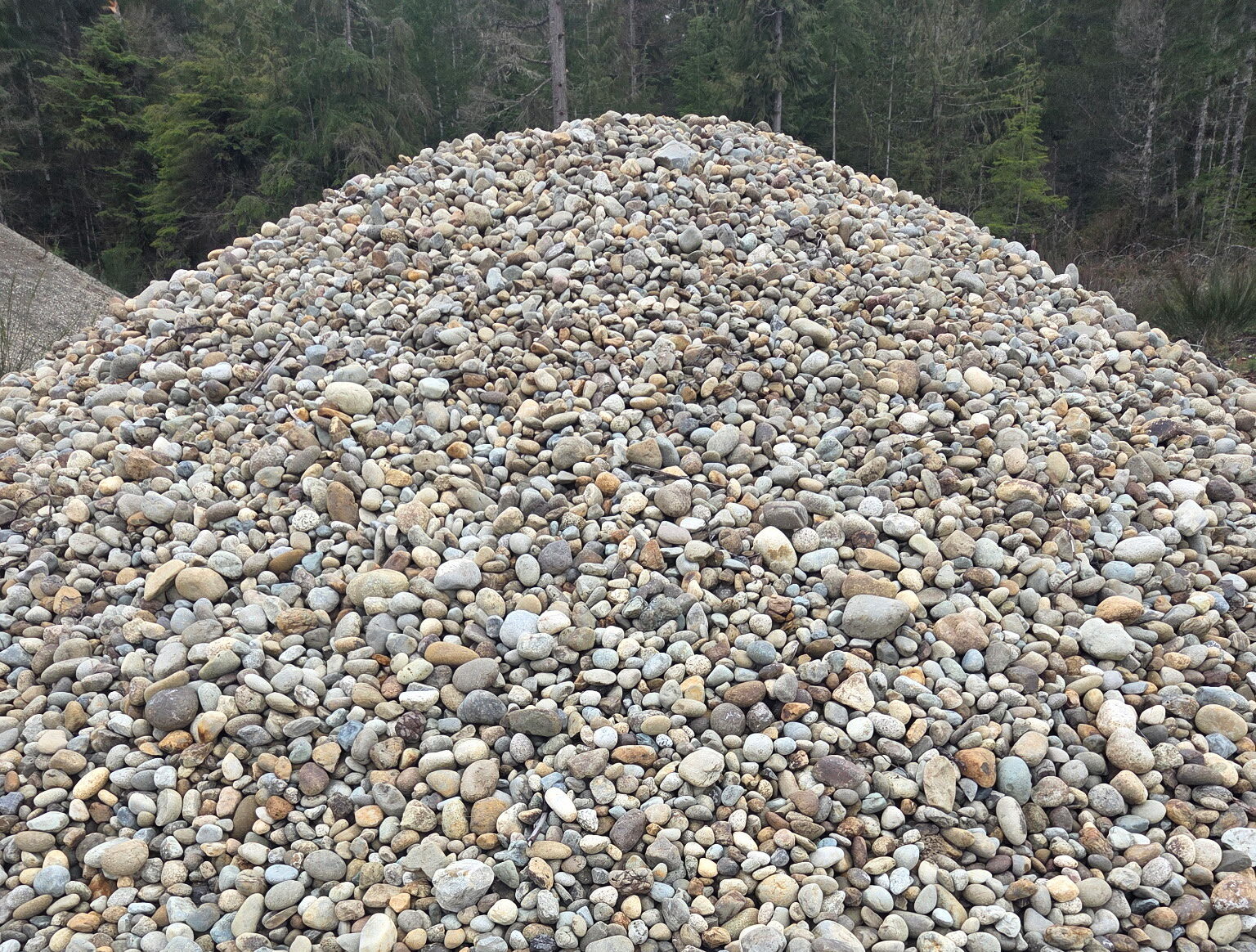 Oversized river rock, specifically the 2″-3″ size, refers to smooth, rounded stones, typically sourced from riverbeds, that range in size from 2 to 3 inches in diameter. These rocks are commonly used in landscaping for decorative ground cover, drainage, and erosion control, offering both aesthetic appeal and practical benefits.
Oversized river rock, specifically the 2″-3″ size, refers to smooth, rounded stones, typically sourced from riverbeds, that range in size from 2 to 3 inches in diameter. These rocks are commonly used in landscaping for decorative ground cover, drainage, and erosion control, offering both aesthetic appeal and practical benefits.
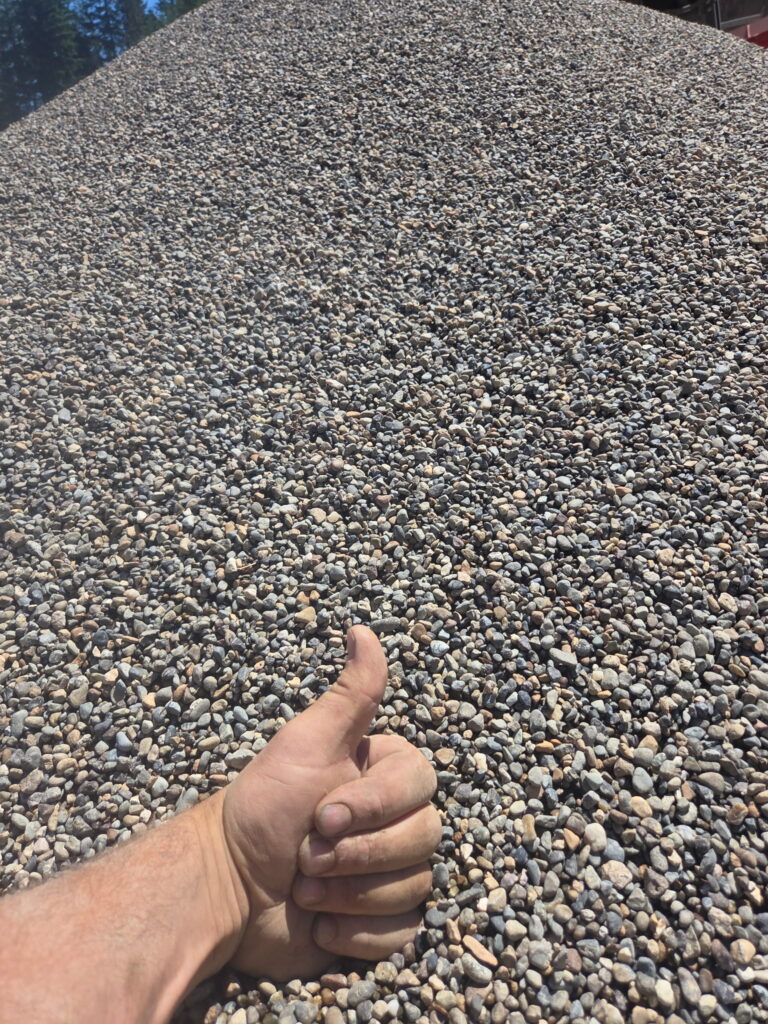
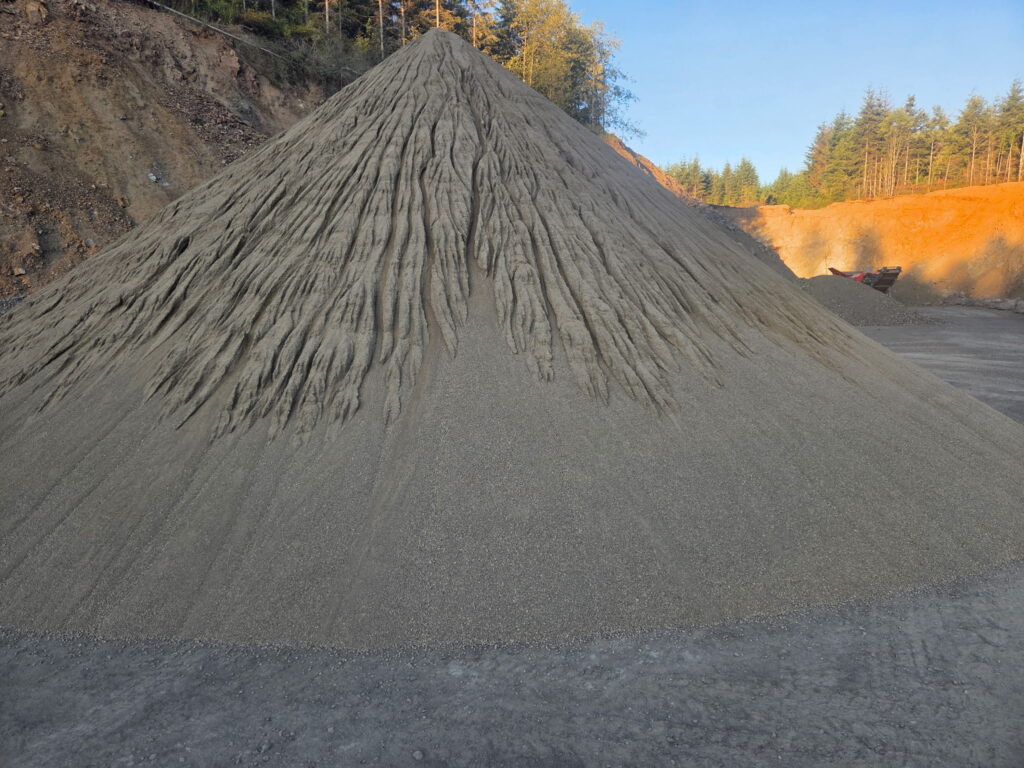 Sand is fine-grained, unconsolidated granular material produced during the crushing and processing of rock.
Sand is fine-grained, unconsolidated granular material produced during the crushing and processing of rock.
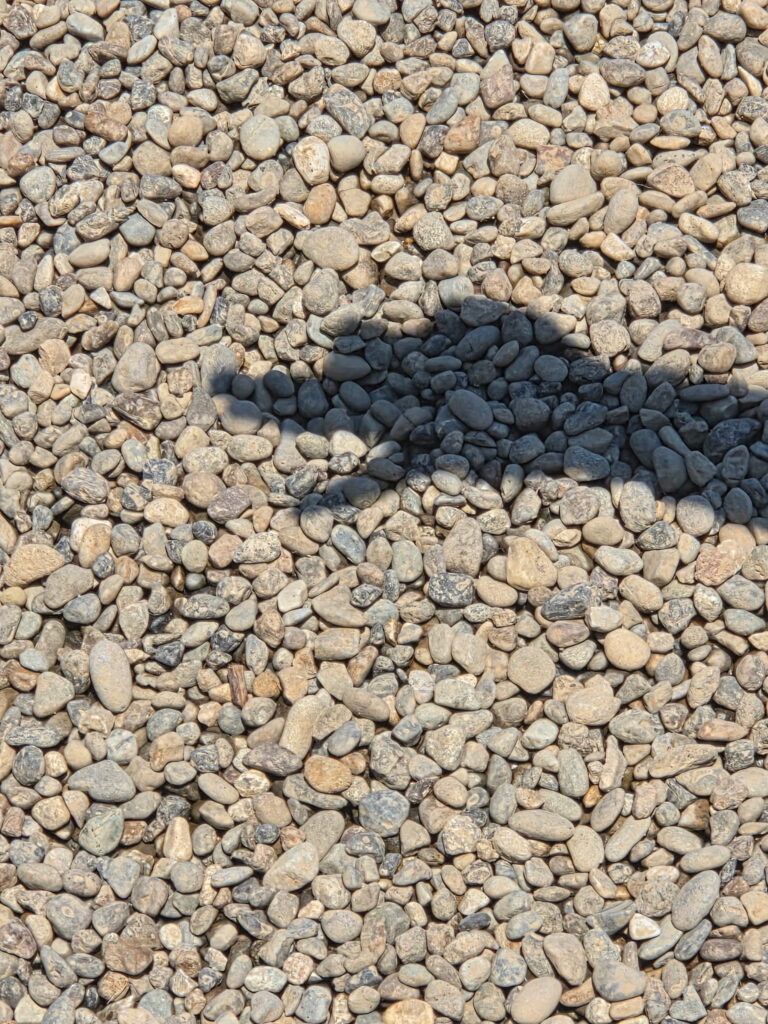
7/8 drain rock is a type of washed, round gravel with a particle size of approximately 7/8 of an inch. It’s commonly used for drainage purposes, such as in French drains, behind walls, under concrete slabs, and for pipe bedding. It can also be used as a low-maintenance ground cover in landscaping.
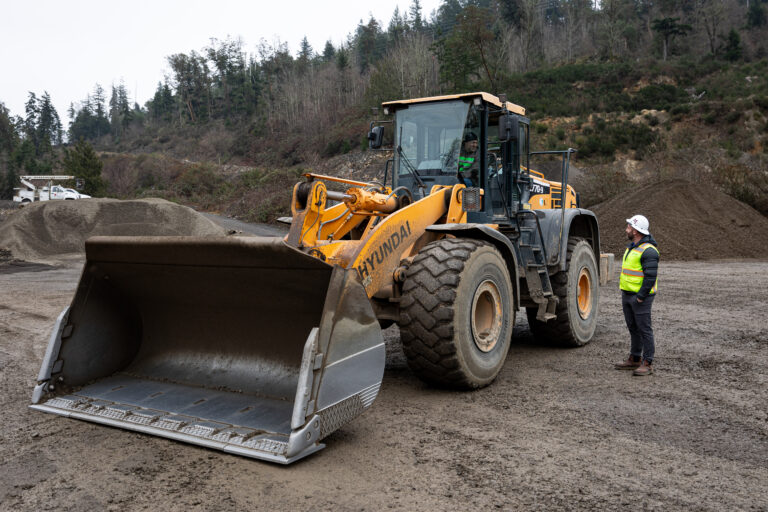
Commercial Contractors
Commercial contractors interested in purchasing material on credit, please fill out a credit application at the link below or contact sales at (360) 552-8115
